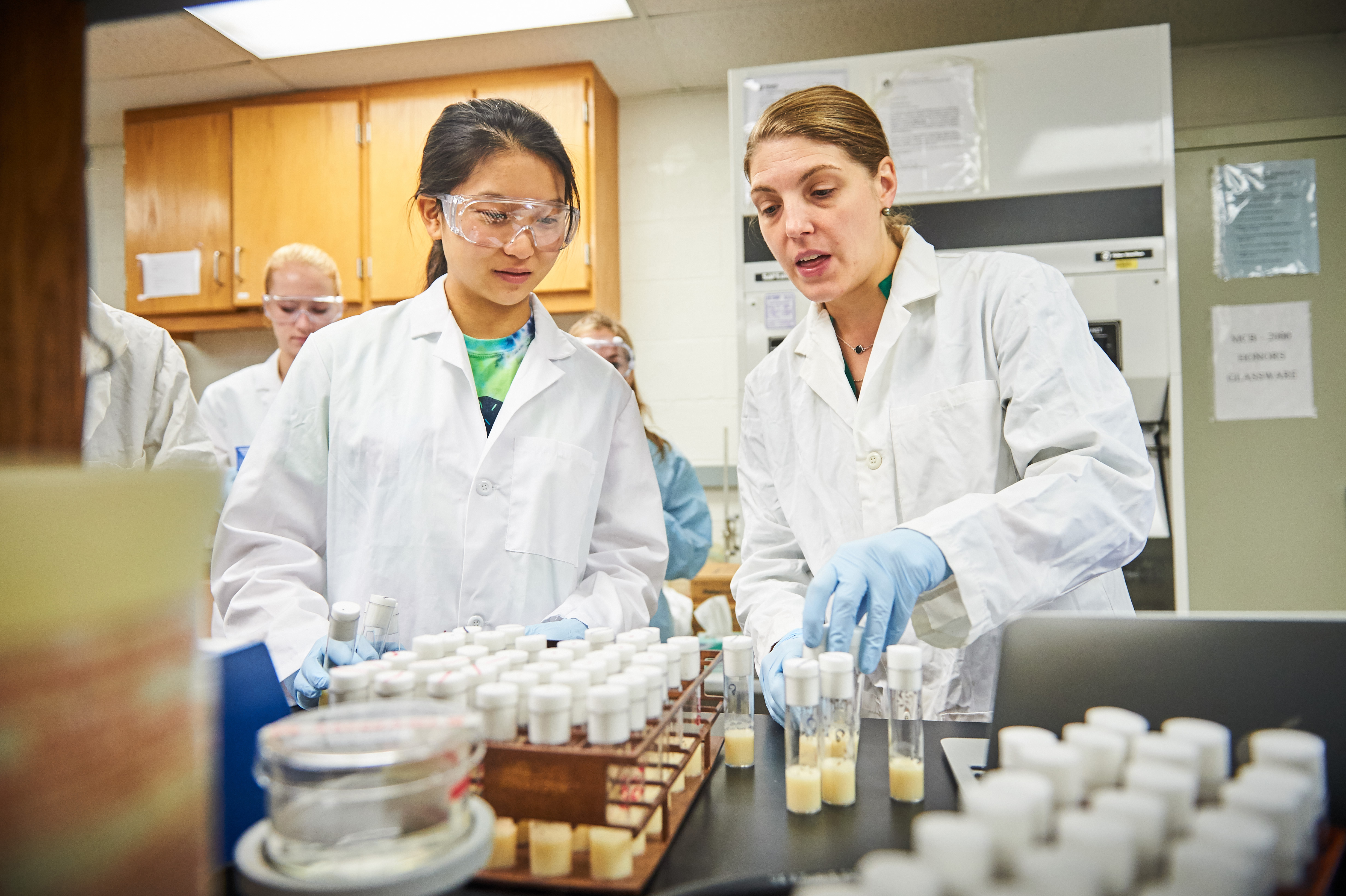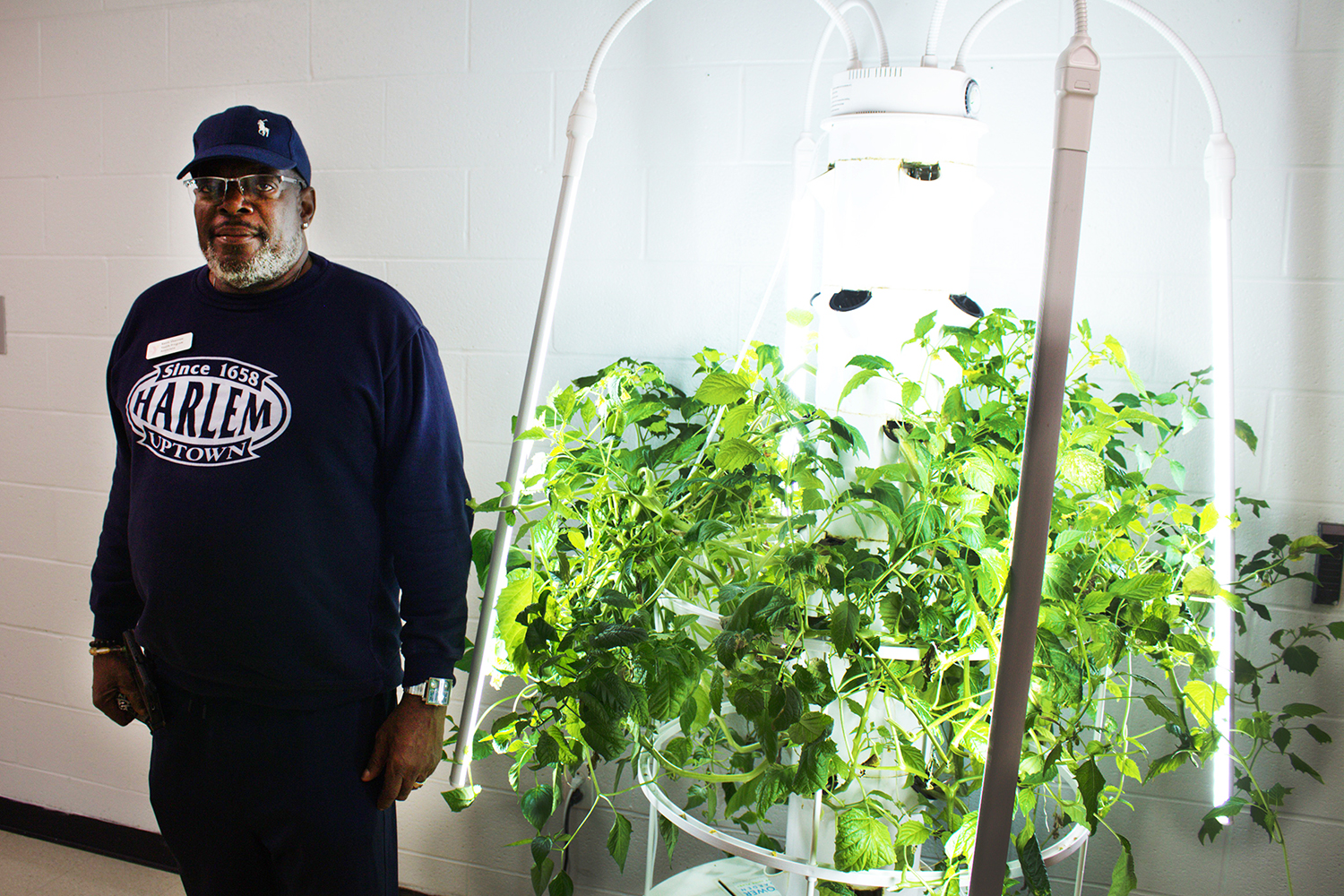Inside our bodies, there is a microscopic world teeming with life known as the microbiome. From the moment we are born, we begin accumulating a collection of helpful bacteria, viruses and fungi that support our immune system and digestive health.
Nichole Broderick, an assistant professor in the Department of Molecular and Cell Biology at the University of Connecticut has received a five-year, $1.92 million grant from the National Institutes of General Medical Sciences to build up the knowledge base of how exactly the microbiome performs these functions.
“I’m thrilled to have the support of NIH to carry out this work. The support of the Maximizing Investigators’ Research Award (MIRA) program for early-stage investigators like myself is a critical boost to my lab as we tackle important questions about the role of the microbiome in animal health.”
Broderick will use fruit flies, which have remarkably similar internal pathways and diseases as humans, to study which mechanisms in the host contribute to the establishment of a normal microbiome. She will look at how signals from microbes cause physiological changes in the host and how the host regulates the microbiome in turn.
Understanding how a healthy microbiome is maintained is an essential step in developing therapies for microbiomes that have been disrupted or not established properly.
For example, when a person goes on antibiotics for an infection like strep throat or a urinary tract infection, the medication that kills the disease-causing bacteria can also disrupt the “good” bacteria in our microbiome.
One disease that has been treated with microbiome therapy is Clostridium difficile infection, an antibiotic-associated diarrhea. By transferring microbiome bacteria from the fecal matter of a healthy person to an infected patient, the patient’s system is able to re-establish a normal balance of their own microbiome.
The success of this treatment has led researchers to wonder other ways that microbiome therapies could be applied to treat various ailments — a question that remains largely unanswered.
Broderick will address this challenge and look to develop strategies to manipulate the microbiome in order to restore normal animal (including human) physiology.
Broderick received her PhD from the University of Wisconsin and completed postdoctoral training at École polytechnique fédérale de Lausanne in Switzerland. Her research focuses on understanding the mechanisms that underlie animal’s interactions with their microbiomes to illuminate how beneficial as well as pathogenic bacteria impact host development, physiology, and health.
This project is NIH Grant No.: 1R35GM128871-01



